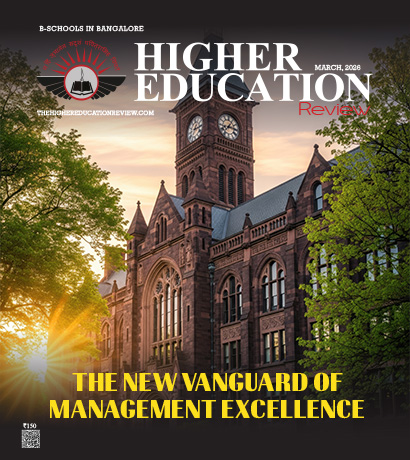Michael Vawter Discusses How Books Shape Stronger Thinkers
 Reading is much more than a leisurely activity—it’s a gateway to growth, understanding, and self-awareness. From childhood through adulthood, engaging with texts helps shape how we think, communicate, and relate to the world. As noted by Michael Vawter, early exposure to books often results in a lifelong habit that fuels curiosity, creativity, and adaptability. As we grow, reading continues to offer new perspectives, helping us navigate complex ideas and situations.
Reading is much more than a leisurely activity—it’s a gateway to growth, understanding, and self-awareness. From childhood through adulthood, engaging with texts helps shape how we think, communicate, and relate to the world. As noted by Michael Vawter, early exposure to books often results in a lifelong habit that fuels curiosity, creativity, and adaptability. As we grow, reading continues to offer new perspectives, helping us navigate complex ideas and situations.
The Role of Reading in Personal Growth
Reading for growth refers to engaging with books in a way that promotes deeper thinking, a clearer understanding, and a better grasp of the world. It’s not just about absorbing stories or facts—it’s about expanding how we think and make sense of information. Even casual readers may find that reading shapes how they interpret daily life or interact with others.
When people read regularly, they tend to develop sharper reasoning skills and a stronger ability to evaluate ideas. A well-written book can challenge assumptions, introduce new perspectives, and help readers think more critically about everyday situations. With time, this habit can influence both personal judgment and social interactions.
How Reading Builds Thinking Skills
Reading exercises the brain in ways that few other activities can. As we follow a storyline or absorb complex ideas, the mind is working, processing vocabulary, interpreting meaning, and making connections.
Books that challenge the reader with new language or unfamiliar ideas naturally expand vocabulary and improve focus. A reader who consistently engages with such material is more likely to approach problems creatively and communicate more effectively under pressure.
A child who grows up immersed in books often enters adulthood with a stronger ability to concentrate and think independently. Whether it’s understanding a political argument or navigating a difficult conversation, the habits formed through reading help make those moments more manageable.
The Impact of Different Genres
Each genre invites the mind to stretch in different directions. Nonfiction trains the reader to evaluate evidence and identify logical structures. Whether it’s a book on science or history, these texts encourage analytical thinking and an appreciation for accuracy. They also help establish a framework for understanding real-world issues.
Meanwhile, fiction offers something equally valuable: the chance to step into unfamiliar lives and viewpoints. A novel about a distant culture or a complex character can spark empathy and widen emotional intelligence. Reading stories like these often leaves lasting impressions that influence how we relate to others.
Biographies and personal essays blend narrative with real-life challenges, offering models for decision-making and resilience. These accounts highlight how individuals navigate uncertainty, which can quietly shape how readers approach their own dilemmas.
Benefits of Early Reading Habits
Children who are introduced to books early tend to carry a natural curiosity into adulthood. Exposure to stories and ideas at a young age helps them build not just language skills but also a sense of imagination and empathy that shapes their worldview. These foundational traits often influence how they engage with others and view themselves.
Parents who read aloud or create routines around books often spark a deep and lasting interest in learning. Schools and libraries that encourage access to diverse reading materials play a major part in developing confident, thoughtful students.
Reading into Adulthood
In adulthood, reading becomes a quiet but powerful way to keep the mind active. Whether it’s diving into a book on psychology, exploring a memoir, or staying updated through thoughtful journalism, these efforts help adults remain informed and adaptable. It becomes a form of self-directed education that evolves with one’s interests.
People who maintain a steady reading habit often find it easier to reinvent themselves in changing work environments. It cultivates reflection, broadens perspective, and supports decision-making in both personal and professional arenas. Reading also fosters emotional balance, offering a retreat from stress and a source of insight.
Practical Strategies to Strengthen Reading Habits
Choosing books that genuinely spark interest is a simple way to stay motivated. When reading feels like discovery rather than obligation, it becomes easier to make space for it in daily life.
Journaling thoughts after reading or sharing takeaways with others adds a layer of reflection that deepens understanding. Whether through community book clubs, online discussions, or quiet moments alone, these practices reinforce the habit. They also encourage active engagement, making reading more than a passive activity.
Even small shifts—like carrying a book during commutes or setting aside ten minutes before bed—can gradually transform reading into a meaningful part of everyday rhythm.

